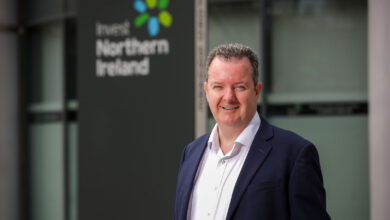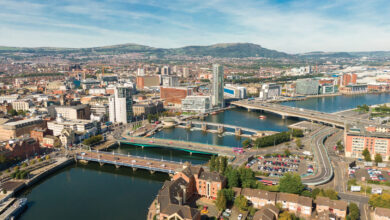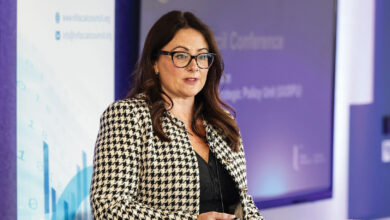North-south skills disparity

Northern Ireland and the Republic of Ireland are both prioritising skills as a pathway to economic resilience and social mobility. However, the Assembly’s Public Accounts Committee (PAC) has outlined significant structural differences and varying levels of progress, cooperation, and mutual learning between both systems.
The PAC recently published two documents that examine skills strategy on either side of the border. Northern Ireland’s Developing the Skills for Northern Ireland’s Future examines the skills needs for Northern Ireland, highlighting challenges of delivery, governance, and data use.
Meanwhile, the Overview of the Current Skills Landscape in the Republic of Ireland, a briefing paper presented to the committee in January 2025, points to a more coordinated and well-resourced system in the Republic underpinned by stable institutional structures.
Northern Ireland’s current skills strategy – Skills for a 10x Economy, launched in 2022 – sets targets to raise qualification levels and lifelong learning participation by 2030. However, the PAC finds limited evidence that the Department for the Economy (DfE) is on track to meet those goals. Only one annual monitoring report has been published, and while 30 of 50 actions have been completed, many key indicators remain stagnant or are regressing.
The report expresses concern that “significant acceleration is needed” on a new skills action plan and that the strategic goals are not sufficiently influencing programme delivery across departments.
In contrast, the Republic’s National Skills Strategy 2025, led by the Department of Further and Higher Education, Research, Innovation and Science (DFHERIS), is supported by clearly defined performance frameworks and dedicated funding. The National Training Fund (NTF), financed by a levy on employers, enables a sustained investment in upskilling and reskilling, with a €1.485 billion funding package allocated for 2025-2030.
Northern Ireland’s skills system, the PAC says, is weakened by fragmented governance. A lack of coordination between DfE and the Department of Education (DE), particularly on the 14-19 Framework, has resulted in duplication of provision, missed opportunities for collaboration, and an absence of joint planning mechanisms. The Committee was “deeply concerned” to find that previously collaborative practices between schools and further education (FE) colleges had become competitive.
By contrast, the Republic’s institutional landscape includes the National Skills Council, nine regional skills fora, and the Further Education and Training Authority (SOLAS), which together provide a structured and decentralised skills ecosystem. According to the OECD’s 2023 Skills Strategy Ireland report, these bodies represent international best practice in joined-up skills governance, with clearly assigned responsibilities across national and regional levels.
The PAC has called for DfE to reaffirm its commitment to the Skills Strategy, develop a stronger evidence base, and establish effective governance arrangements within the next 12 months. It also recommends urgent collaboration between departments to address duplication, share data on vulnerable learners, and build cross-sector accountability.
Daniel McCrossan MLA, chair of the Public Accounts Committee says: “The Department for the Economy spends around £470 million on support for skills and learning – and has more than 370 staff working in this area. While it provides a broad range of skills programmes, there has been little progress towards or evidence of actually meeting the Skills Strategy’s goals.
“We are strongly of the view that the Department’s financial and staff resources could be used more effectively if there was better collaboration and a clearer focus on achieving strategic outcomes.”





